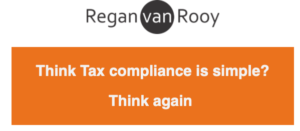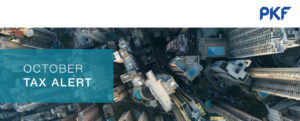Published by: Regan van Rooy
| Unpacking the recent SARS ruling on foreign pensions On 22 August 2022, the South African Revenue Service (SARS) published binding class (“BCR”) ruling 080, which quickly became the talk of the town, or certainly the talk of the SA tax community. So what was so interesting? Well, basically SARS ruled in this BCR that the foreign pension trust (“FPT”) under question does not qualify as a pension fund, provident fund, or retirement annuity fund, and also, contrary to what is included in the FPT rules, that investors acquire a vested right to the capital and income of the FPT. In other words, the investors are seen as acquiring an interest in a vested trust. Shock and horror for many as this single change could have wide-ranging consequences from income tax to estate duty. So what is a foreign pension trust? A foreign pension trust is typically a hybrid product where a trust structure is combined with a pension scheme. Many SA individuals have invested in such vehicles over the years for estate planning and wealth protection purposes. How does this impact you? A BCR is only binding on the class that is indicated in the ruling itself, which in this case is the investors in the particular FPT which obtained the ruling. So in theory, if you have another FPT you don’t need to worry. However, although a BCR is only binding on the applicant and the class referred to in the BCR, it does give us a very good idea of how SARS would look at these types of vehicles and how SARS will treat contributions made to, and distributions received from, these vehicles. Previously, contributions to these foreign pension trusts were allowed without incurring donations tax, and payments by the FPT to the beneficiaries were often regarded as tax-exempt. So what could be the treatment now? Based on the ruling in the BCR, it appears that SARS is of the view that contributions made by investors into a FPT: – would not qualify for a tax deduction on their annual contributions, – and as a result, investors would be seen to acquire a vested personal right to the income and capital of the foreign pension trust. This means that any amounts received or accrued by an investor from the FPT would form part of their taxable income in SA. Yikes! The impact of this ruling is that when investors die before retirement age, they will be subject to SA capital gains tax (“CGT”) on the deemed disposal of their vested rights. If they die after retirement age, the right to the annuity will attract estate duty and CGT on the deemed disposal of the annuity. In summary, there is no deduction on contributions, and there are potentially CGT, estate duty, and personal income tax liabilities. Should you have any investments in a FPT or you were intending to invest in an FPT and would like to understand the implications of this ruling for you, please do reach out to us. |




